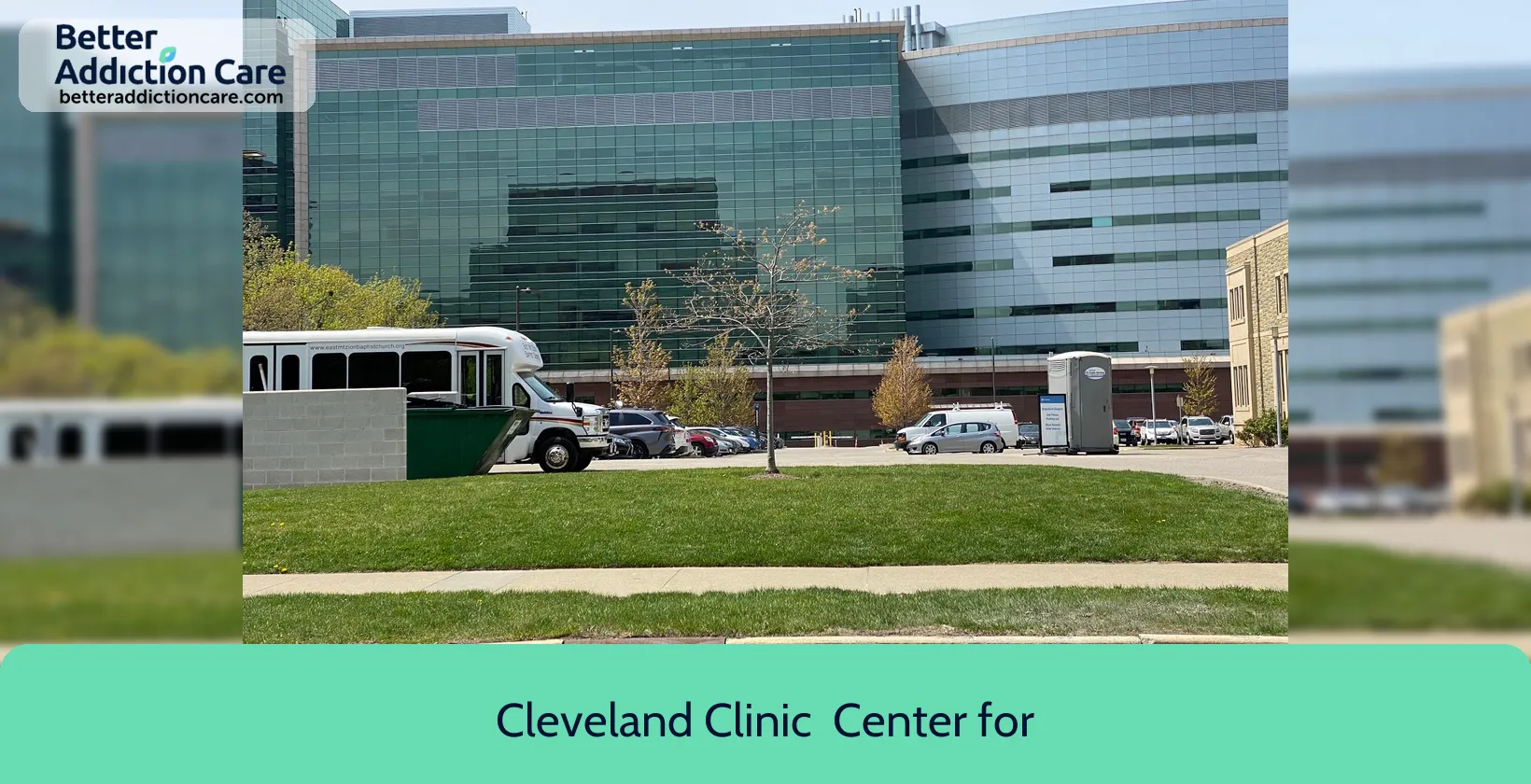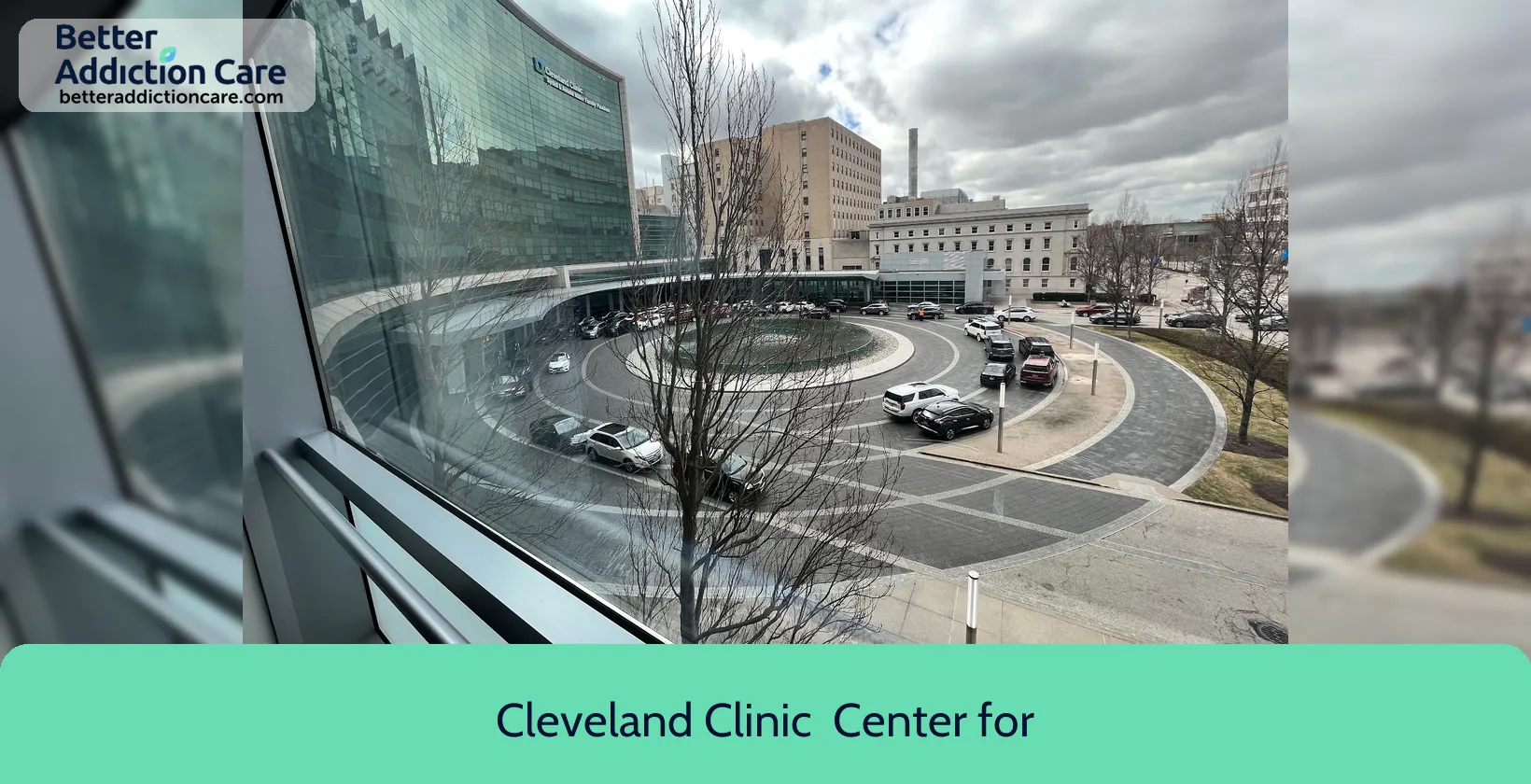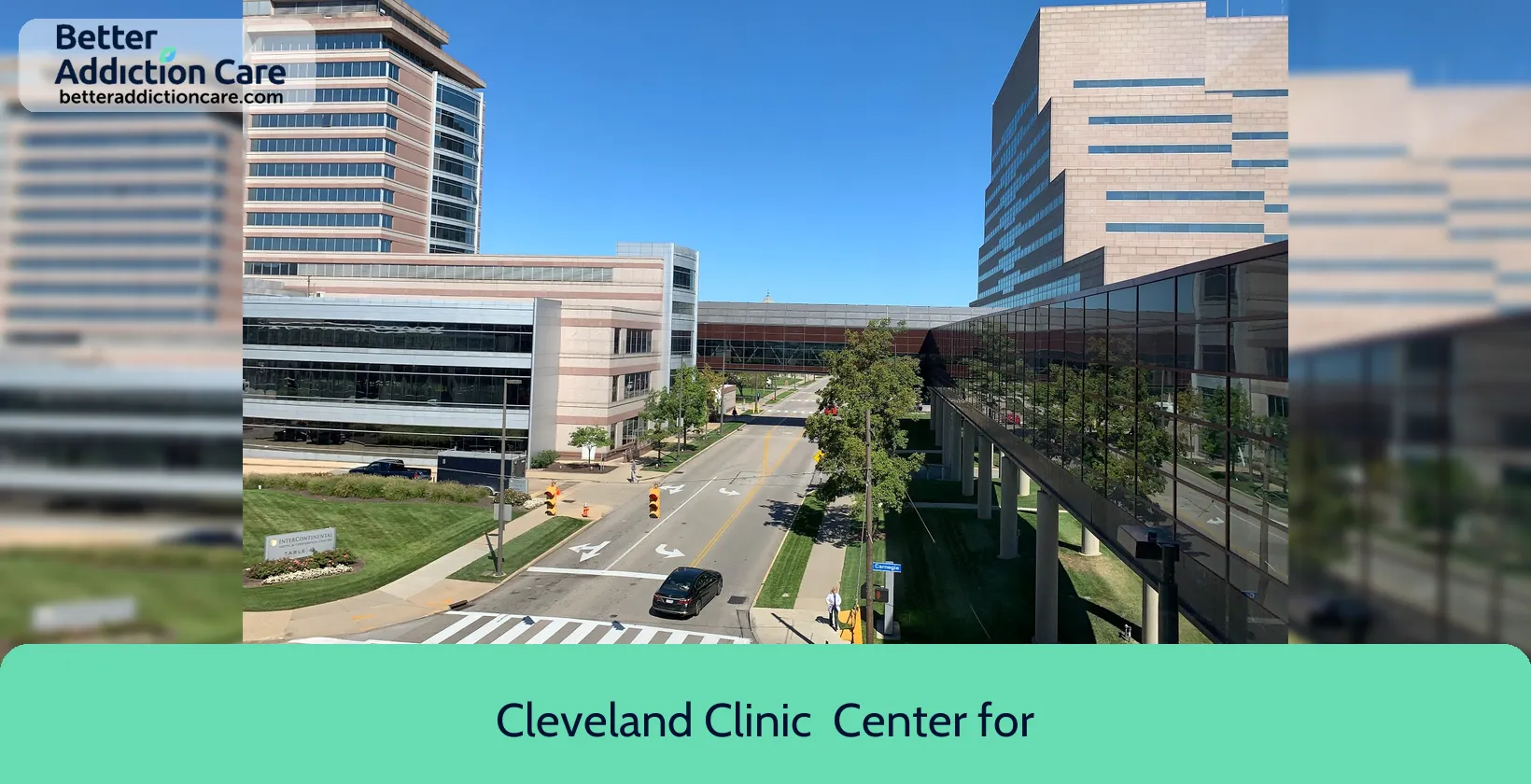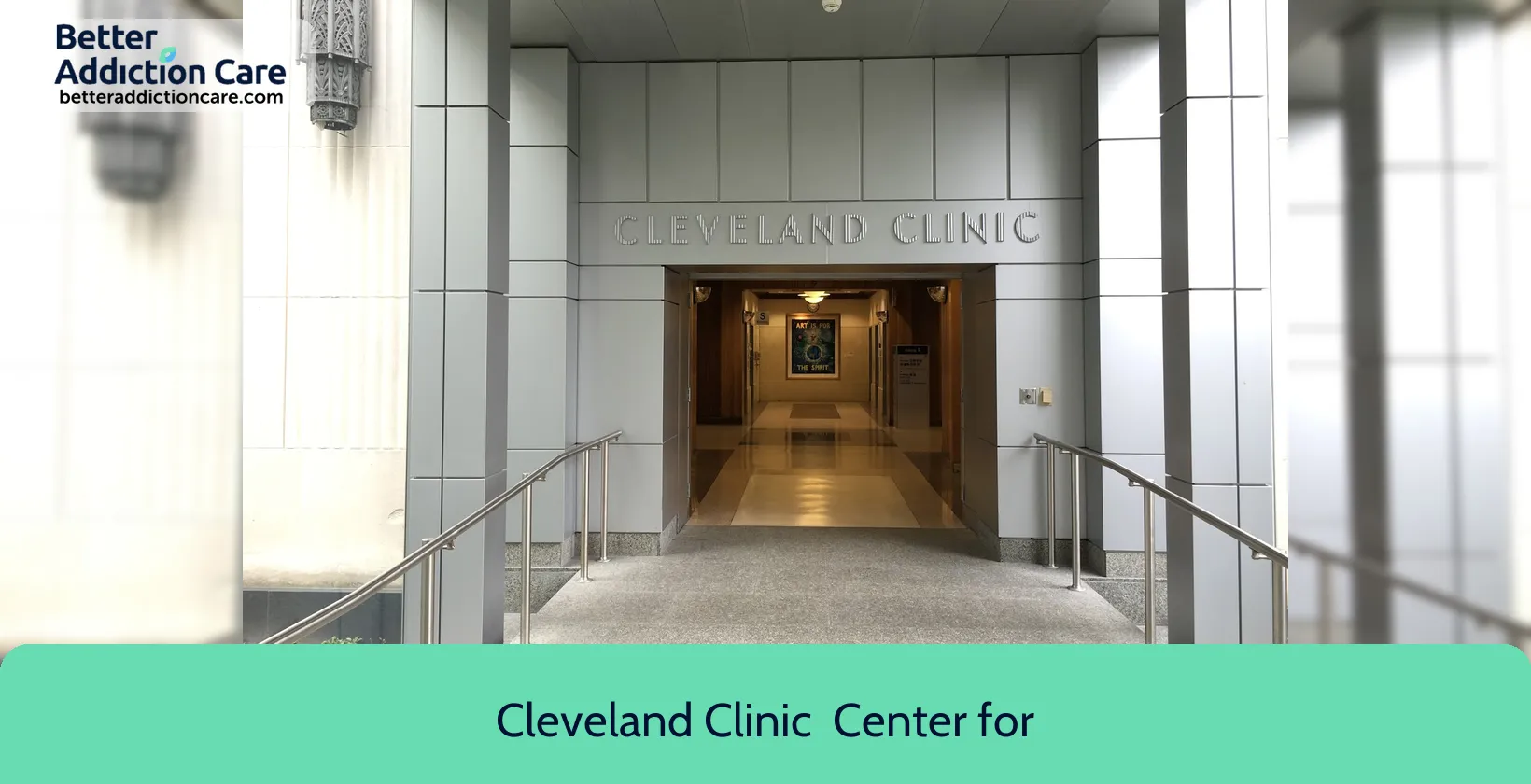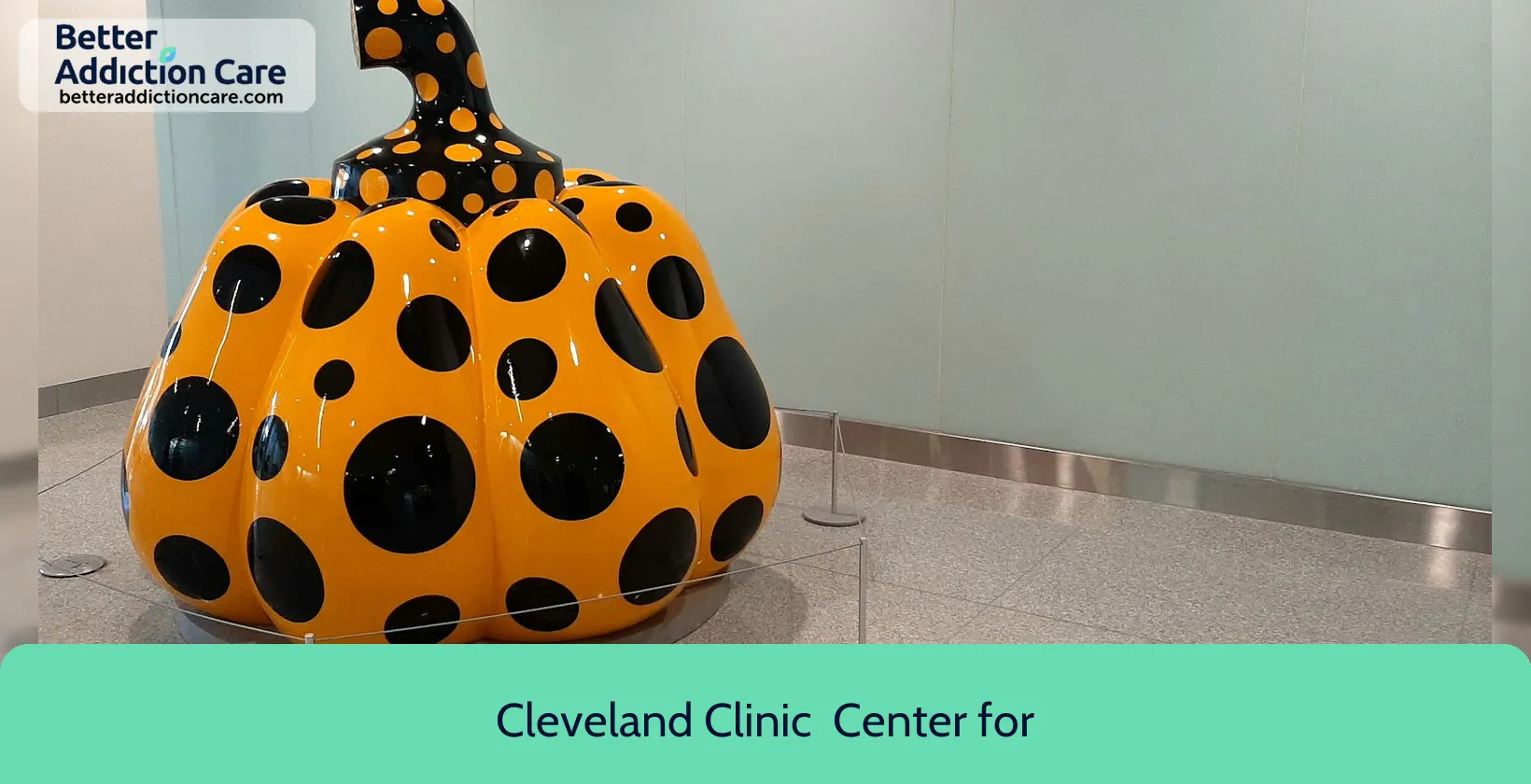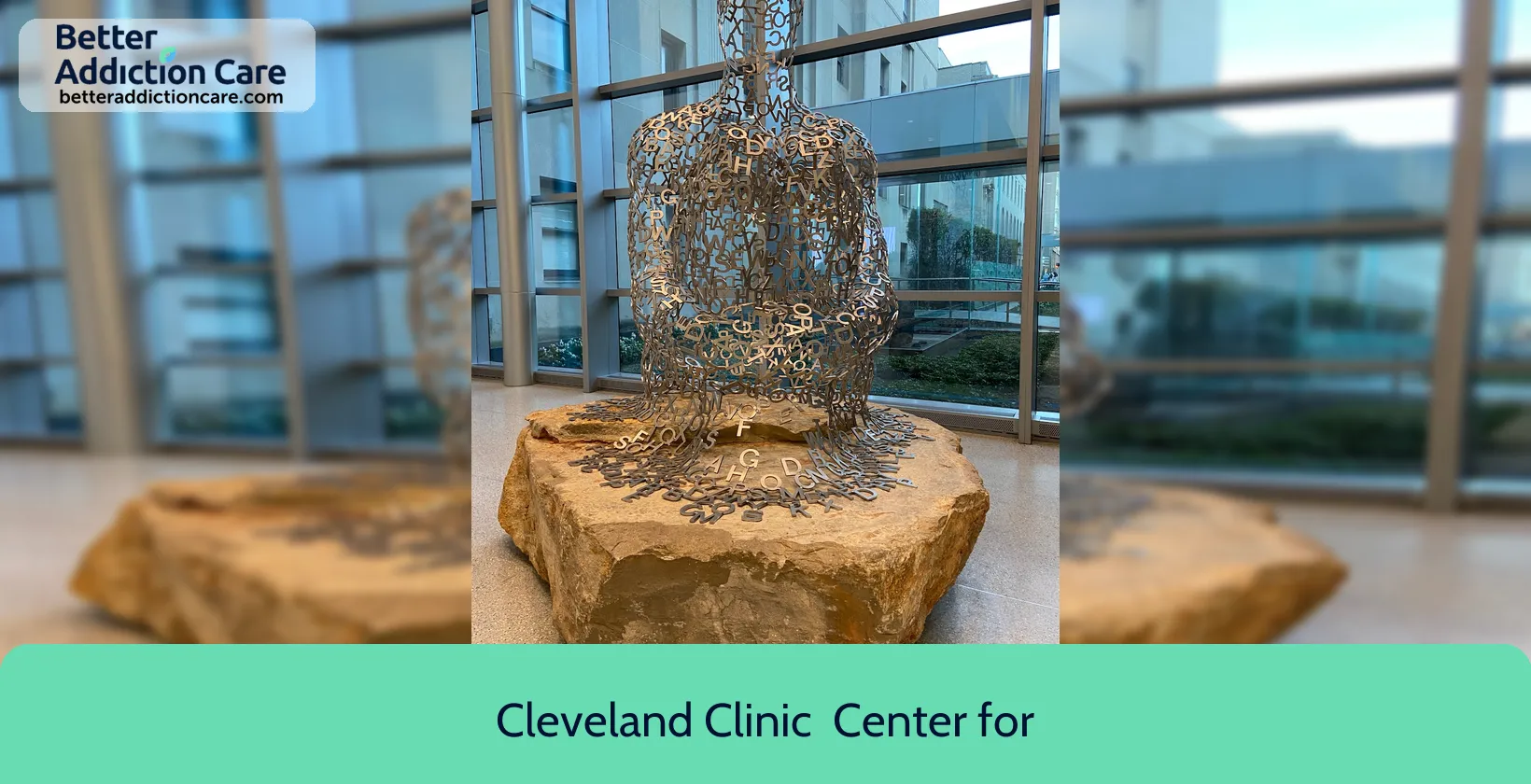Overview
Cleveland Clinic - Center for Behavioral Health is a mental health treatment center for people seeking treatment near Cuyahoga County. As part of their treatment modalities for recovery, Cleveland Clinic - Center for Behavioral Health provides couples/family therapy, group counseling, and cognitive behavioral therapy during treatment. Cleveland Clinic - Center for Behavioral Health is located in Cleveland, Ohio, accepting cash or self-payment for treatment.
Cleveland Clinic - Center for Behavioral Health at a Glance
Payment Options
- Cash or self-payment
- Medicaid
- Medicare
- Private health insurance
- Federal military insurance (e.g., TRICARE)
Assessments
- Screening for tobacco use
- Comprehensive mental health assessment
Age Groups
- Children/adolescents
- Young adults
- Adults
- Seniors
Ancillary Services
- Diet and exercise counseling
- Family psychoeducation
- Integrated primary care services
- Suicide prevention services
Highlights About Cleveland Clinic - Center for Behavioral Health
6.68/10
With an overall rating of 6.68/10, this facility has following balanced range of services. Alcohol Rehabilitation: 8.00/10, Drug Rehab and Detox: 6.00/10, Insurance and Payments: 6.00/10, Treatment Options: 6.73/10.-
Alcohol Rehabilitation 8.00
-
Treatment Options 6.73
-
Drug Rehab and Detox 6.00
-
Insurance and Payments 6.00
Treatment At Cleveland Clinic - Center for Behavioral Health
Treatment Conditions
- Mental health treatment
Care Levels
- Outpatient
Treatment Modalities
- Couples/family therapy
- Group counseling
- Cognitive behavioral therapy
- Dialectical behavior therapy
- Telemedicine/telehealth therapy
Ancillary Services
Languages
- Sign language services for the deaf and hard of hearing
- Spanish
- Other languages (excluding Spanish)
- Arabic
Special Programs
- Persons with Alzheimers or dementia
- Persons with traumatic brain injury (TBI)
- Persons 18 and older with serious mental illness (SMI)
Contact Information
Read our Most Recent Article About Drug Addiction
DISCLAIMER: The facility name, logo and brand are the property and registered trademarks of Cleveland Clinic - Center for Behavioral Health, and are being used for identification and informational purposes only. Use of these names, logos and brands shall not imply endorsement. BetterAddictionCare.com is not affiliated with or sponsored by Cleveland Clinic - Center for Behavioral Health.


